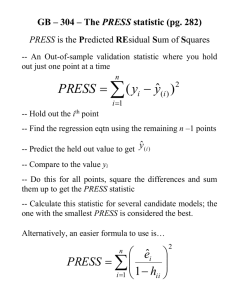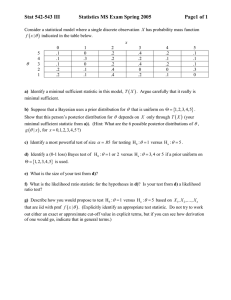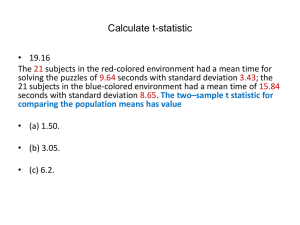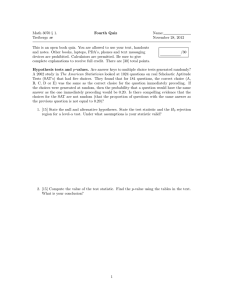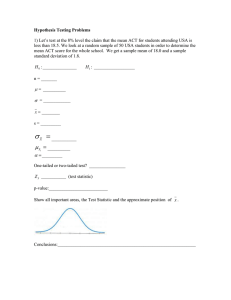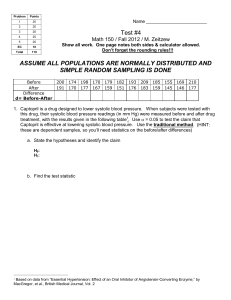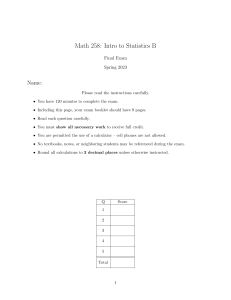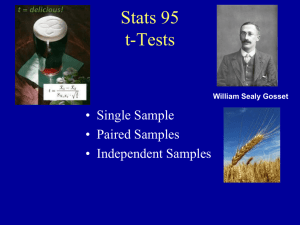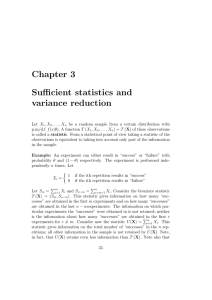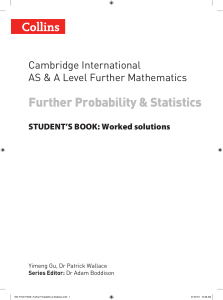95% CI and Width for Mean # of hrs watching Confidence
advertisement
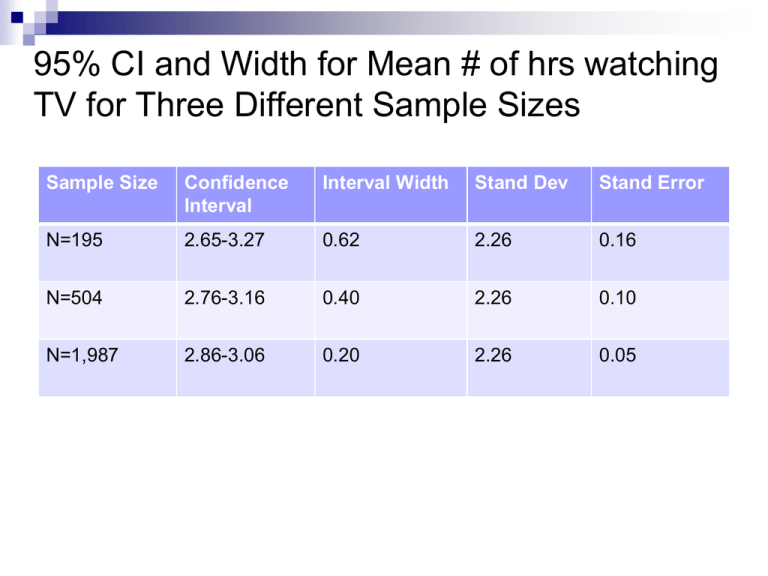
95% CI and Width for Mean # of hrs watching TV for Three Different Sample Sizes Sample Size Confidence Interval Interval Width Stand Dev Stand Error N=195 2.65-3.27 0.62 2.26 0.16 N=504 2.76-3.16 0.40 2.26 0.10 N=1,987 2.86-3.06 0.20 2.26 0.05 Part IV Significantly Different Using Inferential Statistics Chapter 11 t(ea) for Two (Again) Tests Between the Means of Related Groups What you will learn in Chapter 11 When to use a t test for independent means How to compute the observed t value Interpreting the t value and what it means t Tests for Dependent Samples Determining the correct statistic Computing the Test Statistic Numerator reflects the sum of the differences between two groups Degrees of Freedom Degrees of freedom approximate the sample size Degrees of freedom can vary based on the test statistic selected For this procedure… n – 1 (where n is the number of observations) Doing the t test Chapter 7 Prozac Group Placebo Group 53 64 42 68 58 84 39 65 40 50 50 60 61 81 44 76 7 Doing the t test Steps in the process Step 1: Calculate Step 2: Calculate Chapter 7 x1 x2 8 Doing the t test Steps in the process Step 3: Count the number of scores in each group. N1 = # scores in Group 1. N2 = # scores in Group 2. 9 Chapter 7 Doing the t test Steps in the process Step 4: Calculate sample variance for both groups Step 5: Do the math!! Be sure to solve within brackets first!! 10 Chapter 7 Significance testing Steps in the process Step 1: Calculate N1 + N2 – 2 Step 2: One 11 the degrees of freedom or two-tailed test of significance? Did you have a directional hypothesis or not? Chapter 7 Significance testing Steps in the process Step 3: Using the table, find the critical values of t using N1 + N2 – 2 degrees of freedom. Page 353-355, the t distribution. Step 4: Compare the obtained t with the critical value of t. 12 Chapter 7 You Try!! 13 Participant ID Placebo Participant ID Treatment 13 59 11 28 14 37 12 34 15 42 17 26 20 30 18 36 23 37 19 23 24 51 22 24 29 55 26 36 30 46 27 26 Chapter 7 So How Do I Interpret… t (24) = 2.45, p > .05 t represents the test statistic used 24 is the number of degrees of freedom 2.45 is the obtained value (from the formula) p > .05 indicates the probability Using the Computer SPSS and Pared Samples t Test SPSS Output What does it all mean?
